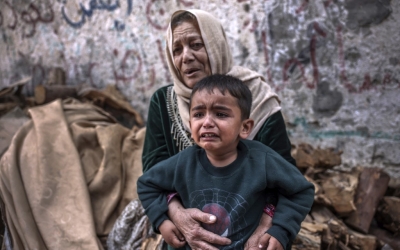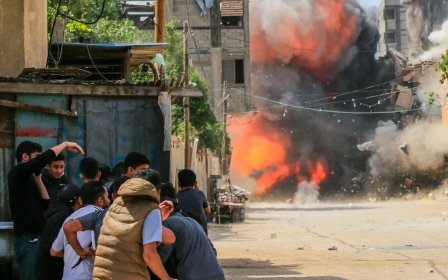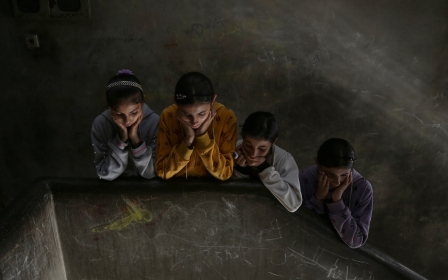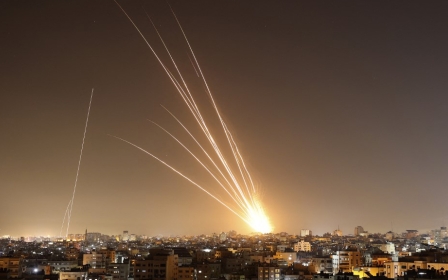Gaza: Egypt brokers ceasefire to end Israel's bombardment
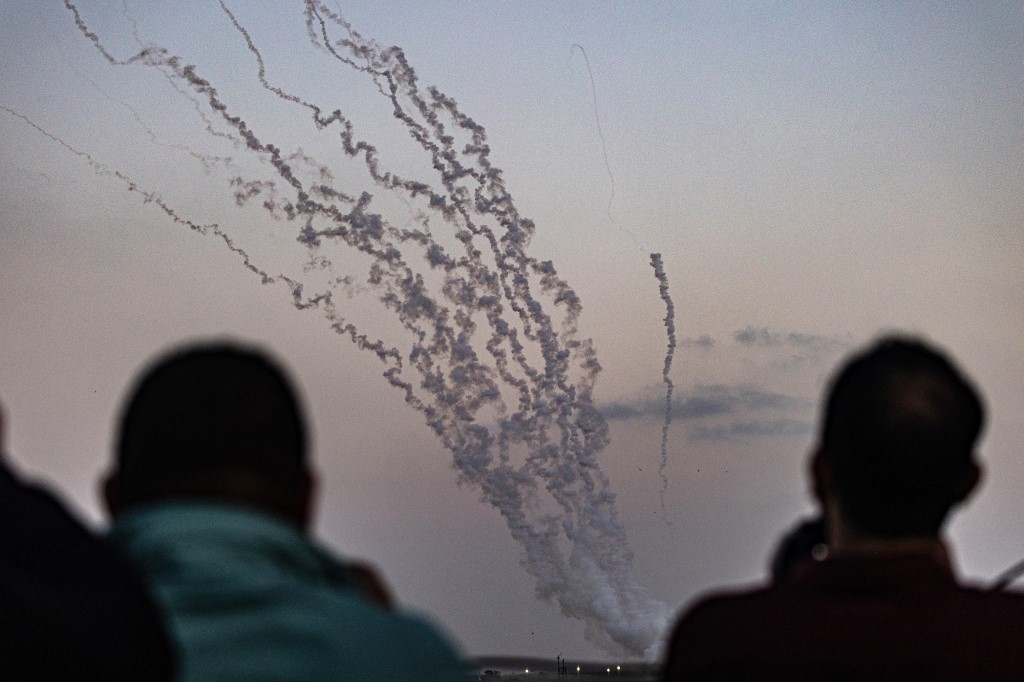
Israel and Palestinian leadership in the Gaza Strip agreed to an Egyptian-mediated ceasefire that took effect at 10pm local time on Saturday.
Israel agreed to the ceasefire while rejecting the Islamic Jihad's demand that Israel end all targeted assassinations, Israeli newspaper Haaretz reported, citing an official Israeli source.
Israeli Prime Minister Benjamin Netanyahu's office thanked Egyptian President Abdel Fattah el-Sisi for Egypt's "resolute efforts" to broker a truce.
The Israeli announcement added that "quiet will be answered with quiet, and if Israel is attacked or provoked, it will do whatever is necessary to defend itself".
New MEE newsletter: Jerusalem Dispatch
Sign up to get the latest insights and analysis on Israel-Palestine, alongside Turkey Unpacked and other MEE newsletters
For its part, Cairo called on all sides to adhere to the agreement, Egypt's Al-Qahera News television channel reported.
"The two sides will abide by the ceasefire which will include an end to targeting civilians, house demolition, an end to targeting individuals immediately when the ceasefire goes into effect," a text of the agreement seen by Reuters read.
Missile strikes from both sides were reported in the minutes before the 10pm deadline, with Israel's military announcing it had hit six operational command posts of Islamic Jihad group.
'If you return, we will return'
Following the deadline, however, a fragile quiet took hold, with the Joint Command, an umbrella body of armed groups in the Strip, including Hamas and the Islamic Jihad, warning Israel against any further attacks.
"The resistance forces [in Gaza] are concluding the conflict united and resolute, and caution the enemy against returning to the policy of targeted killings. We are ready with a firm hand on the trigger, and if you return we will return," the group said in a statement after the truce set in.
There had been mounting calls for a ceasefire to be agreed, including from Israel's closest ally, the United States.
US Deputy Secretary of State Wendy Sherman, in a call to Israeli Strategic Affairs Minister Ron Dermer, "stressed the urgency of reaching a ceasefire agreement in order to prevent any further loss of civilian life", the State Department said.
Saturday marked the fifth day of Israel's bombardment on the Gaza Strip, which has left at least 33 Palestinians dead, at least one-third of whom were confirmed to have been civilians.
Israel's offensive, dubbed "Operation Shield and Arrow", also killed six senior members of Palestinian Islamic Jihad, the second-largest armed group in Gaza after Hamas.
'No choice but to flee'
In addition to the nearly three dozen deaths, the air strikes in Gaza have led to major damage to civilian infrastructure and left many homeless.
Moayed al-Bahri, a resident of Gaza's Beit Lehia, recounted to Middle East Eye the "terrifying" moments air strikes hit his neighbourhood.
"I was sleeping when my wife woke me up to flee as Israel had warned our neighbour's house, the Banat family," Bahri said.
"Me and my neighbours had no choice but to flee. Men, women, young and old were screaming. The scene was terrifying. We fled far away to a house where our relatives live."
He noted that Israel had bombed the house with a "high explosive rocket", which caused heavy damage.
Meanwhile, officials in Gaza warned on Saturday that it would have no choice but to close down the besieged territory's only power plant unless Israel reopened its border crossing to let in emergency fuel.
The state-run Wafa agency reported that the power plant sustained heavy damage during Israel's latest bombardment on Gaza.
A hospital in central Gaza had been damaged as a result of a strike on a house next to it. And the Gaza Electricity Authority warned that the area could face critical power outages within 72 hours due to a lack of diesel fuel for the sole power plant in the enclave.
Israel has completely closed the crossings connecting it to Gaza since Tuesday, halting the entry of essential goods into the coastal enclave.
Israel unilaterally withdrew troops and settlements from Gaza in 2005 but has maintained an air, sea and land blockade since.
Gaza already suffers from a "chronic electricity deficit" due to the blockade, resulting in increasing fragile living conditions for the population, according to the UN Office for the Coordination of Humanitarian Affairs.
Middle East Eye delivers independent and unrivalled coverage and analysis of the Middle East, North Africa and beyond. To learn more about republishing this content and the associated fees, please fill out this form. More about MEE can be found here.


